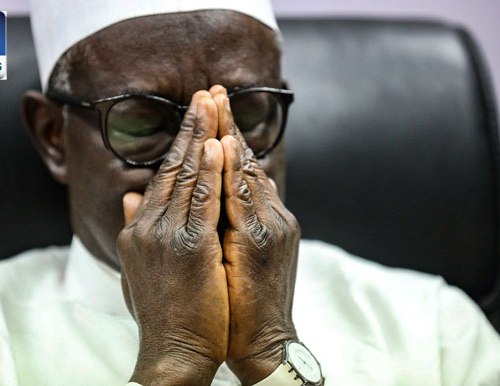By Emeka Alex Duru
The various instruments that introduced supplementary elections in the country’s electoral system, may have been couched in good faith. The idea is to ensure that elections are held in areas they were not concluded at elections dates due to unintended reasons. The electoral umpire, in such instances, declares the election, inconclusive and sets a new date for the poll. With that, the rights of the electorate and candidates in an election, would be guaranteed.
It was against this backdrop that a supplementary election was held in Imo State on May 6, 2011, when a governorship contest between the then Governor Ikedi Ohakim of the Peoples Democratic Party (PDP) and Rochas Okorocha, then of the All Progressives Grand Alliance (APGA), was held. The exercise, which was conducted during the tenure of Prof Attahiru Jega-led Independent National Electoral Commission (INEC), was to take care of Mbaitolu and Ngor-Okpalla local government areas of the state, where governorship elections were disrupted by incidences of violence and other infringements, in the state election, earlier held in April. Results of the exercise which was added to the outcome of the earlier poll in the other 25 councils of the state, saw Okorocha triumph over Ohakim. On account of the transparency of the exercise and commitment of Resident Electoral Commissioners (REC), drawn from other states to supervise it, the supplementary election was eulogized.
The same measure was adopted four years later in determining the winner of the governorship race in the state between Okorocha who had left APGA for the All Progressives Congress (APC) and Emeka Ihedioha of the PDP. As in 2011, Okorocha won. However, in this instance, controversies had begun to dog the exercise, not only in Imo but in most states where it was applied. Aside the cost in deployment of resources and duplication of personnel in conduct of supplementary elections, there have been insinuations of manipulations creeping into the system.
Perhaps, no other time had this allegation gained weight as in the 2019 general elections. Until the conclusion of polls in some states last Saturday, March 23, seven states had been slated for supplementary governorship elections. They were Adamawa, Kano, Bauchi, Benue, Plateau, Rivers and Sokoto. Elections also took place in in isolated constituencies in other states, aside the stated seven. Due to court action, the exercise has been put on hold in Adamawa, while that of Rivers had been put in abeyance by INEC. The situation in Bauchi had more to do with the halt in the collation of results of the March 9 governorship poll. In the other states where the supplementary poll eventually took place, it was trailed by allegations of rigging and violence.
Kano was particularly a sad experience where thugs, allegedly working for the governor, Abdullahi Ganduje of the APC, literally took over the state. At the end of the exercise, the Governorship Election Collation Officer in Kano, Prof. Bello Shehu, said Ganduje garnered 1,033,695, while his PDP opponent, Abba Kabir scored 1,024,713 votes.
Supporters of the PDP candidate, who was leading in the result of the March 9 poll, did not take kindly to the declaration. By Sunday night, there were reports of protest by the aggrieved supporters in major parts of the state.
The suspicion in some quarters is that supplementary elections are gradually becoming a strategy for the electoral umpire to get elections shifted in a later date, especially if it thinks that a particular candidate may not do well in all the districts on a scheduled date. That was precisely the situation in the Osun governorship election of November 2018, when the poll was declared inconclusive when it was obvious that the PDP candidate, Senator Isiaka Adeleke, was almost coasting home to victory. In a rescheduled exercise, Gboyega Oyetola of the APC, who had trailed behind, suddenly emerged the winner. The state election Petitions Tribunal, has however upturned the verdict, declaring Adeleke, the duly elected governor.
PDP has rejected the declaration of Ganduje as the winner of Kano poll. It may head for the courts, many suspect. Benue chapter of APC has also raised indications of challenging the victory of Governor Samuel Ortom in court. Similar fears exist in Sokoto, Plateau and Bauchi. There is thus, the likelihood of more court actions trailing the supplementary polls than those conducted on the scheduled date.
Analysts consider the supplementary elections, arising from inconclusive elections, a huge waste of resources and man hour. Former senate President, David Mark, thinks as much. He particularly frowns at the tendency of declaring elections inconclusive, arguing that the practice is not in Nigeria’s constitution. Mark, who reportedly spoke on Saturday in his home town, Oturkpo, Benue State, advised the INEC, to avoid declaring elections inconclusive so as to minimise additional costs of conducting supplementary elections. He said inconclusive elections also come with emotional and physical stress to politicians and voters, and urged INEC to always muster courage to do the right thing.
“The exercise is unhealthy for both politicians and the electorate; it brings disillusionment to both parties,” he said. According to him, the concept of inconclusive election is strange and unknown even to the Constitution.
“If declaration of inconclusive elections is allowed to stay, it will rather encourage some politicians not to present themselves to the electorate but wait to disrupt elections so that it will be declared inconclusive”, Mark added.
Not many can fault his observation, given what is becoming of the exercise. There are even fears of the measure truncating the country’s democracy, if not adequately handled.













